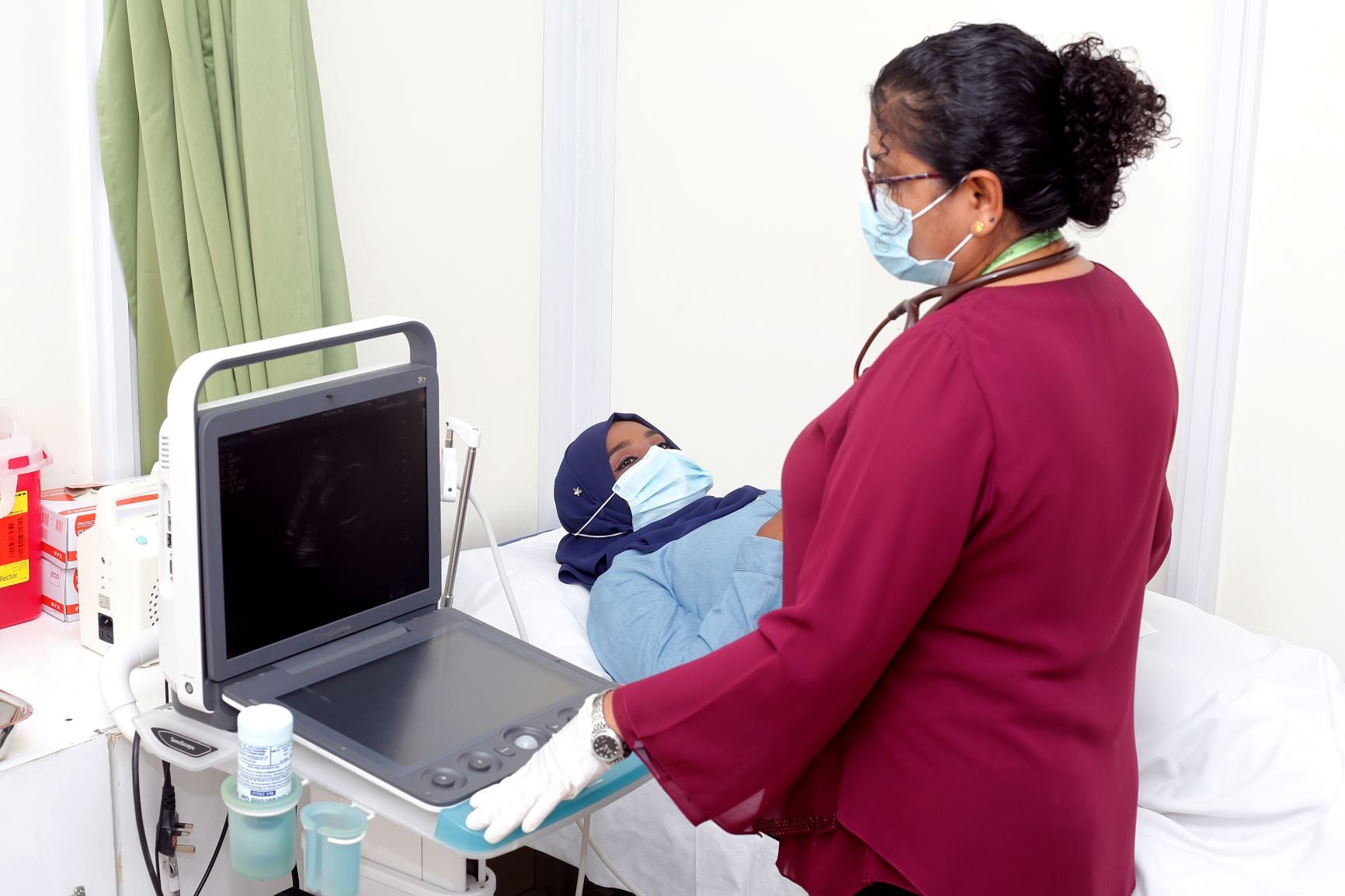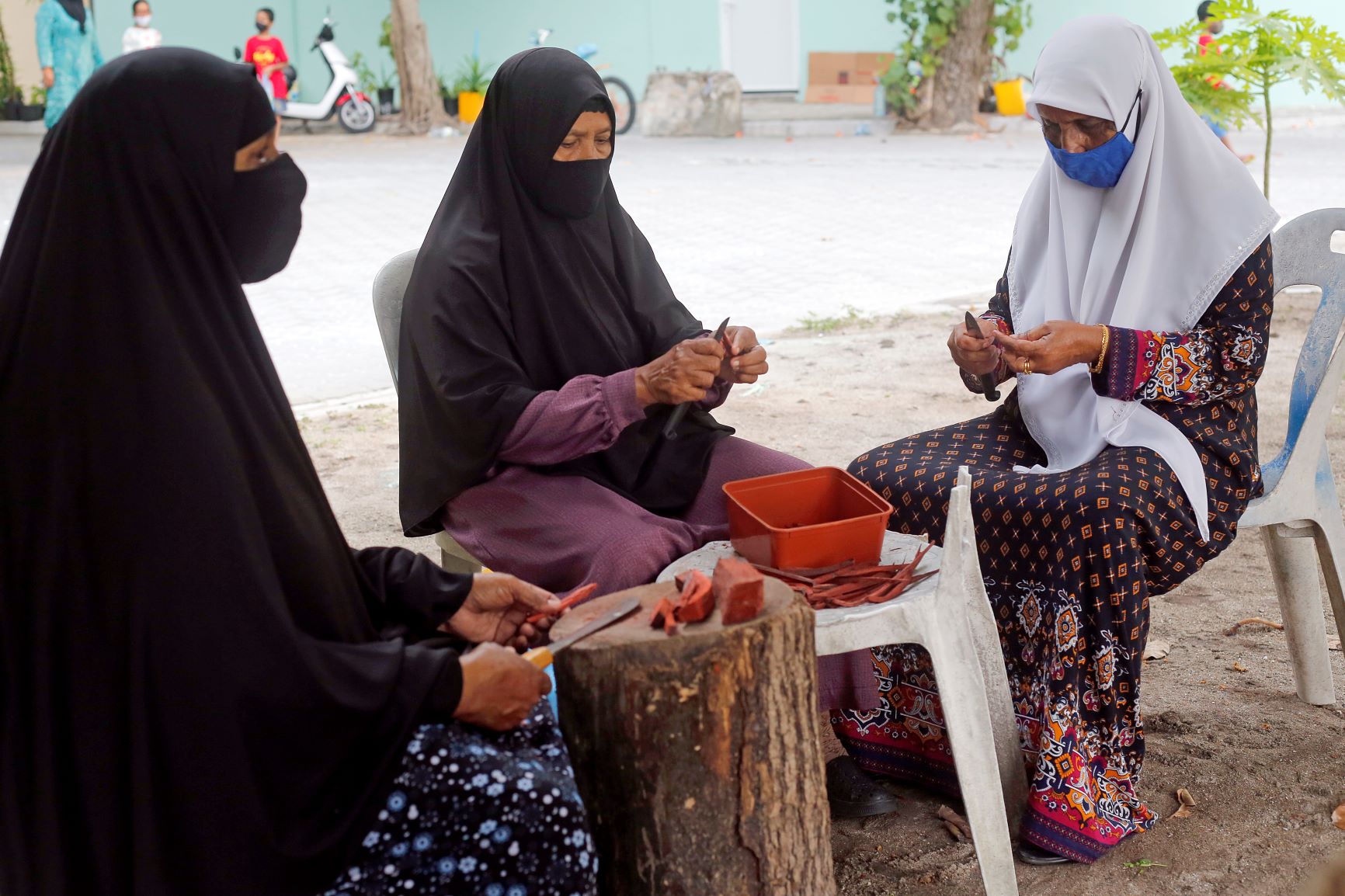“I’m living proof that screening for cervical cancer can save lives. I had the chance to treat cervical cancer that saved my life. This is the story of Suneetha, a 42- year old mother of three from Kaafu Maafushi. Her advice to other women is “Please don’t miss your chance. Get a regular checkup!”
At the time Suneetha was working at Maafushi Police Station when she turned up for a mobile Cervical Cancer screening camp conducted by Society for Health Education (SHE) and Hulhumale Hospital in 2019. “VIA test came out positive and I was devastated,” she said. “After confirmatory tests, I found out the abnormal cells had spread to my uterus and I had to do a hysterectomy to remove it”. Suneetha recalls the numerous hospital visits to Male and overseas, and long hours of agonizing waits. “It was an emotionally draining experience for me, my husband and my children not to mention the financial burden of lost working days for the entire family.”

Visual Inspection of cervix with Acetic Acid (VIA) as a screening method for Cervical cancer was introduced to the Maldives supported by UNFPA in 2013. At the time, routine screening for cervical cancer as a prevention tool was not available for women especially in remote islands. Like in many countries across the region, the introduction of VIA was supported by UNFPA to screen all the women of reproductive age, as VIA is practical and cost effective for mobile screening trips in a widely dispersed country like the Maldives. When VIA screening was introduced women were generally not aware of Cervical cancer, and normally do not get screened even though Cervical cancer is one of the few highly preventable cancers. Roughly 138,000 women in Maldives (aged 15 and above) are at risk for Cervical Cancer however the coverage of cervical cancer screening was remarkably low at 6.2% in 2014. Since then VIA has become standard for mobile trips providing screenings for women of reproductive age.

Cervical cancer is one of the prevalent reproductive health morbidities affecting women in Maldives.
As one of the 234 women screened for cervical cancer by SHE in 2019, Suneetha had the opportunity to detect and remove precancerous lesions effectively to stop the development of invasive cervical cancer. In the archipelago, many health facilities without special services have regular camps carried out by organizations from Male which provide opportunities for screenings, family planning services and specialist consultations These visits are usually subjected to donor funding. Especially now with Covid-19, many services are discontinued in outer islands. As seen in Suneetha’s story these services are life-saving for women.
“My request is for all women to have regular screening to be healthy as long as possible. If cancer is detected early, it can be treated.”


